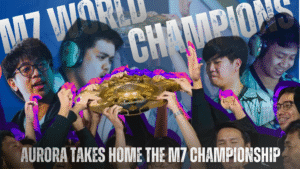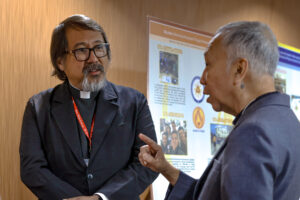By The Bedan Herald | December 10, 2021
A Stitch in Time saves Nine
THE country is experiencing a crisis that is detrimental to the development of most people, especially the youth. Approaching almost two years since the pandemic struck the world in all aspects, the educational sector is one of the most affected systems that uncovered the lapses and made it where it is now: “stagnant.” Despite these so-called “breakthroughs” such as adapting to the new normal, improving the online platforms used, and the like, it still has a lot of loopholes that need to be addressed. The question lies retrospectively on where is the youth headed in the future? Is the system responsive to their heeds and needs? Where should we even start when one problem branched out into different forms?
Generation Z has faced major learning system shifts: from the K-12 curriculum to distance learning because of the pandemic. Batch 2022 is now facing the probable future of possibly graduating online (if cases soar and other super-spreaders are discovered), after spending at least one and a half years of face-to-face classes. Parents of elementary students are concerned because the early years of education are important in shaping children’s development. The presence of their peers and teachers aid in learning and interpersonal relations. Moreover, there is a learning loss experienced. We are already below the rank in terms of math, science, and reading in the world and the shift to distance learning even heightened that.
In addition, the boundary of student life and personal life is also absent in the setup. Not only that, but the rise in mental health needs according to crisis hotlines is also alarming. These factors affect the students’ performances and might spiral into something more if not addressed or given attention to. Some had inevitably acquired the virus or even their family members which adds to the anxiety experienced by them. Some raise concerns regarding the overwhelming amount of tasks being given without proper guidance or education on how it’s done. Parents might be unattended to offer help because of a lack of knowledge or even work.
Not everyone can adapt to distance learning because of the lack of resources, both the family and schools themselves. The ever-changing lockdowns made it difficult for parents to work which, in a way, caused a domino effect on their children’s education. Fulfillment of lower-level needs, as Maslow’s hierarchy would say, is the priority of most people now — the physiological and safety needs. Of course, their children are the hope in this situation, hence their hard work to send them to school. However, digital constraints somehow make it difficult to do so. Students resort to online donations just to acquire the equipment needed to continue with their education online. If only they were given adequate support and resources, the number of dropouts will not spike. Has the system failed the aspiring youth just because of the means they didn’t have in the first place?
Unfortunately, just like in the medical sector, the proposed national budget has been cut out as well. According to reports, the Alliance of Concerned Teachers (ACT) noticed that 51.18 percent had been removed from PhP 11.1 billion this year to Php 5.4 billion next year in the National Expenditure Program (NEP). As for school health facilities, the budget allotted is Php 358 million. The coalition report also pointed out that there was an absence of provisions regarding distance learning modalities. It is worth noting that some schools are also being used as quarantine facilities for the meantime.
The licensure examination for professional teachers has been suspended again in areas such as Manila, Romblon, Lucena, and Butuan. It was announced a week before the supposed examinations scheduled on Sept. 26. Like medical front-liners, there is a lack of educational front-liners. Most of them are overworked but underpaid. This poses a challenge for the future of learning whether it be distance or face-to-face. Their pleas should be heard instead of ignored. Yes, they are modern-day heroes that sacrifice themselves for the sake of delivering knowledge, but that doesn’t mean that they are resilient enough to face these adversaries on their own. They need support as well. The spirit of kapit-bisig only applies within their communities, while higher-ups remain their eyes closed.
Isn’t it a bit tone-deaf when the recent opening of classes was considered a victory that is worth celebrating? It shows the prioritization of quantity over quality. Various teacher groups said that there is still a shortage of modules because of the lack of means for them to be reproduced. Most of these efforts come from their resources. It seems incongruent with the actual outcome: students plea academic ease and educators struggle to distribute modules and to acquire required advancements in technology for seamless sessions. In return, some students lack devices on their own as well as decent internet connections and home set-ups to reciprocate the teachers’ efforts.
In the subject of face-to-face classes, the Department of Education (DepEd) once mentioned that vaccination isn’t required for teachers back in September. However, a week after, they did mention that all school personnel must be vaccinated. To conduct the dry run, students should also be vaccinated. Giving the credit to where it is due, a vaccination rollout for kids and adolescents started in October. Limited pilot runs of face-to-face classes are set to commence on Nov. 15. Everyone is preparing for back-to-school, from parents, local government units (LGU), to school personnel, more importantly, the students themselves. Retrospectively, daily Covid cases in the Philippines are lowering in numbers which is a bit timely towards the scheduled pilot testing of limited face-to-face classes.
There is another issue circulating regarding academic dishonesty. Social media sparked the need for ‘academic commissioners’ as their last resort. What they do is offer services like writing essays, solving math problems, making powerpoints, and the like. In the bigger picture, there are ethical concerns with the practice but were the students’ reasons ever heard? A Rappler article cited that one of the reasons why students pay someone is because of the overwhelming number of tasks to be accomplished. On the other side, the commissioner is also in need of funds to use for online classes, whether it be for tuition fee payments, for thesis, or even for purchasing devices for online learning.
The future for Batch 2022 graduates (aka the first K-12 graduates) and the impending unemployment due to the slow rise of the economy is fast approaching if the pandemic response will still not improve. All these obstacles are experienced alongside the threat of the virus. We are far behind our hopes for a #LigtasBalikEskwela, but the approval of pilot classes is one step towards our goals. However, if these problems aren’t given awareness, attention, or solutions to, we might be stuck in this crisis, affecting future generations. To address these needs, voices should be heard. We all deserve what is best for us and it should reflect the words of promises being told to us.
Volume 27 | Issue 2




